This article is a part of 2000: Revisited, a week-long series of features looking back on some of the headlines and the forgotten stories that filled the sports pages 20 years ago.
In our latest instalment, Paul Dollery speaks to former Republic of Ireland and Ipswich Town midfielder Matt Holland about a year that helped to define his career.
* * *
DURING AN INJURY stoppage in the first half of Ipswich Town’s game at Everton in September 2000, Matt Holland found himself in conversation with the opposition’s high-profile summer signing.
After catching a glimpse of his name and shirt number on Paul Gascoigne’s left hand, Holland was somewhat mystified.
“I just happened to look down and saw ‘Holland 8′ there,” he explains. “I asked him what it was about and he said: ‘The gaffer goes mad because I always forget who I’m supposed to pick up at set pieces, so I have to write it down’. It was quite a funny moment from a very memorable day.”
For Ipswich, memorable days were frequent during a remarkable first season back in the Premier League following a five-year absence.
They earned a draw at home to a Manchester United side that had won a historic treble 15 months earlier.
They travelled to Elland Road and got the better of David O’Leary’s Leeds United, who went on to feature in that season’s Champions League semi-finals.
They also won at Anfield at the expense of Liverpool, whose season yielded silverware in the League Cup, FA Cup and Uefa Cup.
Nevertheless, the highlight for Holland was that afternoon at Goodison Park, when Gazza and Everton were beaten 3-0 by the Premier League newcomers.
Holland, the Republic of Ireland international in Ipswich’s midfield, captained the club to their best season in nearly two decades. The fifth place finish left them just three points shy of qualifying for the Champions League. A Uefa Cup place was ample consolation for a team that entered the campaign as relegation favourites.
“As far as a team performance goes, that win at Everton was as good as we played,” says Holland. “After the game, their fans actually applauded us off the pitch. To go to a place like Goodison, play as well as we had done, and then to have that recognised by their fans, I’d say that was my favourite moment of the season.”
They may have adapted swiftly to the rigours of the Premier League, but the journey there had been long and arduous for Ipswich Town.
When George Burley signed Holland from Bournemouth in the summer of 1997, the Tractor Boys were smarting from a play-off semi-final defeat to Sheffield United.
They suffered the same fate again in ’98 and ’99 – to Charlton Athletic and Bolton Wanderers respectively – before finally securing promotion in 2000 via a fourth consecutive visit to the play-offs.
The transition to the top tier of English football was eased by the form of Marcus Stewart, who ended the season ahead of the likes of Thierry Henry and Michael Owen in the Premier League’s goalscoring charts. The English striker’s tally of 19 was only bettered by Chelsea’s Jimmy Floyd Hasselbaink.
“Going into that promotion season, of course there would have been quite a bit of hurt carried over from those play-off defeats,” Holland says. “Having said that, even though it was three attempts in a row without even getting to a final, I think we still felt that we were getting closer.
“George Burley didn’t make too many changes in the summer [of 1999]. It was a team we felt was capable of getting promotion so there was plenty of belief, but it was still a very tough time after going quite close again.
“Thankfully we started the following season well, so there was definitely positivity and optimism building. There were some really good players and strong characters in that dressing room too.”
While aiding his club’s bid for promotion, Holland appeared on the radar of Mick McCarthy, who had been alerted to his availability by Ipswich Town’s manager.
Although born in England, the midfielder was eligible to represent Ireland via his paternal grandmother from Monaghan. He would ultimately experience many big occasions on the international stage, but his first outing in a green jersey came in the modest surroundings of Bray’s Carlisle Grounds against a League of Ireland XI.
“I had made George Burley aware that I could play for Ireland and that I was keen to do so. I think he spoke to Mick, who then called me out of the blue at home.
“I actually thought at first that it was one of the Ipswich lads messing around. But it was Mick. He mentioned a B international and I jumped at the opportunity.”
In the autumn of 1999, just a few months removed from Ipswich’s latest play-off failure, Holland officially became a senior Ireland international at the age of 25 when he replaced Mark Kennedy in the 85th minute of a decisive game in Macedonia.
However, the milestone was spoiled in cruel fashion by Goran Stavrevski. Ireland were on course to secure the victory they needed to guarantee qualification for Euro 2000 until Stavrevksi’s header from a 90th-minute corner beat Alan Kelly.
Holland says: “The goal wasn’t my fault at all, but you still ask yourself if it was because I had only just come on. Christ, I’ve seen some heartbroken dressing rooms but that was up there with the worst I can remember. There was shouting and all sorts going on. Emotions were running very high. It was like being in a nightmare.”
By the time he won his next cap, Ipswich had finally made the Premier League breakthrough. In the circumstances, Holland might have been forgiven for skipping a few international friendlies in order to extend the celebrations of a long-overdue achievement.
Yet six days after leading his club to a 4-2 victory over Barnsley in the play-off final at Wembley in May 2000, he was in Chicago to make his first start for Ireland in a 2-2 draw with Mexico.
“You know what it’s like with those end-of-season internationals where a lot of players don’t make the trip. It gave me a good opportunity to catch Mick’s eye. Those games were really important to me.”
His performances in the US Cup campaign – which also included a 1-1 draw with USA and a 2-1 win against South Africa – put Holland firmly in Mick McCarthy’s thoughts for the 2002 World Cup qualifiers, which were looming.
That October in Lisbon, he definitively established himself at international level. With the Boys in Green trailing against a Portugal team spearheaded by Luis Figo and Rui Costa, his long-range strike in the 73rd minute earned a point for McCarthy’s side.
“That was certainly a great moment for me,” says Holland, who thereafter started seven games for Ireland on the road to the tournament in Japan and South Korea.
“I came on at half-time when it was 0-0 and the instruction was to sit in front of the back four, not to venture too far, and protect what we had. But when we went behind it changes the mentality and you have to start pushing forward a bit more and taking a few more risks.
“I remember picking the ball up and looking for a pass, but it opened up. No one came to me, so I went another three or four yards and thought: I’m close enough to have a hit here. I caught it nicely and it found its way into the back of the net. An amazing feeling.”
After the disappointment of 1999, when he narrowly missed out on promotion to the Premier League and qualification for the European Championships, 2000 was proving to be a considerably more fruitful year in the career of Matt Holland.
At its conclusion, as well as being the captain of the club sitting in third place in the Premier League, he was becoming a key contributor also for a team bound for the World Cup.
“It was a great time, absolutely,” he says. “My son had just been born too, so there were a lot of good things going on. I couldn’t argue with how things were shaping up.”
Holland accumulated 49 senior caps during an international career that peaked in the Far East in the summer of 2002. Departing with the Ireland squad was the perfect antidote to the disappointment of relegation with Ipswich Town, who struggled with second-season syndrome as they sought to maintain the standards of the previous campaign.
At half-time in their opening game of the World Cup, Ireland found themselves a goal behind against Cameroon. However, Holland heroic’s intervention secured a point that was vital in securing a place in the knockout stages for Mick McCarthy’s team.
By cancelling out Patrick M’Boma’s first-half opener with a superbly-executed equaliser on 52 minutes, he became just the fifth Ireland player to score a World Cup goal.
“Everyone dreams about what it would be like to play in a big tournament against the best players when they’re growing up, so to be at the World Cup at all was a huge honour. But to actually score, it’s like… wow!
“What do you do? How do you react? I don’t really recall the first five or ten seconds – where I was going or what I was doing. But what I would say is that in terms of how I felt, I don’t think there was anything before it or after it that replicated that moment.
“I quickly kind of came to my senses then and I remembered where my family were, so I ran around the back of the goal and waved at them while trying to shrug the lads off my shoulders.
“The magnitude of it all sinks in, but then you’re back at the halfway line, you get your breath back and you remember that you’re in the middle of a World Cup game so there’s still work to do. But those seconds immediately afterwards are almost impossible to describe.
“I still get lots of nice messages about that goal, particularly on the anniversary of the day, people telling me where they watched the game at 7 o’clock in the morning and stuff like that. Some of the messages I get are brilliant and I really enjoy reading them.
“It’s almost a bit surreal to put yourself back in that position, that it actually happened. Even now, you sometimes have to still pinch yourself to remind yourself that it actually did happen.
“I have one of the balls from the game. I’m not sure if it was the actual ball that I scored the goal with, but it’s certainly one that was used in the game. I have a picture on the wall of the ball hitting the net as well. It’s lovely to look back and remember that yeah, that was me.”
With a quarter-final place at stake, Ireland endured a heartbreaking defeat to Spain on penalties in the round of 16. Holland, one of three Irish players who failed to convert in the shootout, opted for power instead of precision with an effort that struck the crossbar.
“It’s the lowest I’ve ever been,” he admits. “Literally in the space of two weeks, I’ve gone from the best individual moment I’ve had in my career, to the lowest. It haunts me to this day. It’s another moment that’s really difficult to describe.
“I felt that I’d had a good tournament so I was confident taking the penalty. I had already made my mind up that if I was to take one, I would strike it like I did. I took eight penalties in my career, all of them were in shootouts, and I scored seven. The one I missed was the only one I blasted, which was against Spain.
“I regret the fact that I blasted it, but what I didn’t want to do was take a tame penalty that would easily be saved and then have to look back and think that I should have put my foot through it.
“I don’t know if it was adrenaline, tiredness or something else, but I decided at the time that blasting it was the right option, instead of placing it like all the others that I scored. It hurt badly. I remember being in tears in my hotel room that night, speaking to my wife at home. I was absolutely devastated.
“I’ll be forever grateful to Kevin Kilbane because he came to the room and encouraged me to put it to one side, that it was over and done with, and he insisted that I go out with all the lads. I’m glad that I did because I could easily have spent the night wallowing in it alone in the room. I really appreciated Kev doing that.
“But while I still think about the goal against Cameroon, the memories of the penalty shootout against Spain are there just as much.”
After missing out on qualification for the 2006 World Cup, Holland retired from Ireland duty. By then, his reputation as one of the national team’s most reliable and consistent performers had long been solidified.
Over the course of an international career that spanned seven years, he often enjoyed a successful midfield partnership with a man who later labelled Holland “more English than David Beckham”.
Writing in his second autobiography, which was published in 2014, Roy Keane took aim at Holland for singing God Save The Queen before the 2000 play-off decider that took Ipswich Town back to the Premier League.
Holland has no desire to conceal his roots – he’s English-born and English-bred. However, as his contribution to the team would repeatedly attest, the embrace of the Irishness in his background was authentic.
“The truth is that it was a big occasion, there was a lot going on, and I wasn’t singing the anthem at all until I looked to my right and saw George Burley, the manager, singing it. He’s Scottish so I was thinking ‘maybe I should be singing it too’. I mumbled a bit then but I didn’t belt it out by any stretch of the imagination.
“Listen, it’s a fact that I was born in England, brought up in England and a lot of my family are English. I can’t hide that, it’s the truth. I was a bit embarrassed about that whole thing, but I wasn’t belting the anthem out either. It was a mistake.
“You’re not going to please everyone, especially nowadays when you get plenty of stick for all sorts of things on social media. Even though I don’t think too many people have a massive issue with it, I am a bit embarrassed by it.”
He adds: “I totally respect Roy. I enjoyed his company and enjoyed picking his brains about football and about Manchester United, how they did things and how he captained the side. He is an incredible football man with an incredible football brain. Discussing all sorts of different issues, I found him humorous and engaging company.
“I think Roy knew that I was a player that gave his all for Ireland. He’s entitled to his opinion and to have his say, especially when it’s someone who has achieved as much as he has. But honestly, it’s something I’d prefer not to give much attention to.
“Anyone who knows me knows how passionate I am about Ireland. I took my son over to watch the Denmark game last year. I played for Ireland but now I’m an Ireland fan and I want us to do well. Yeah, it was hurtful, but there’s nothing I can do about it.”
Following Ipswich’s relegation in 2002, Holland spent a year back in the second tier before returning to the Premier League via a transfer to Charlton Athletic, where he was also appointed captain. In total, he made 164 appearances in six top-flight seasons.
He reflects fondly on his time at Premier League and international level, with the success of 2000 acknowledged as the launchpad for the myriad occasions that will live long in the memory.
“It’s what you work for. All those years of graft, hard work and training come to fruition to give you an unbelievable year. In terms of what was achieved, it’s a year that I certainly wouldn’t want to change.”
The42 is on Instagram! Tap the button below on your phone to follow us!






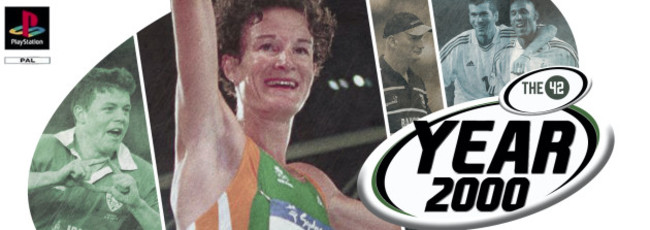
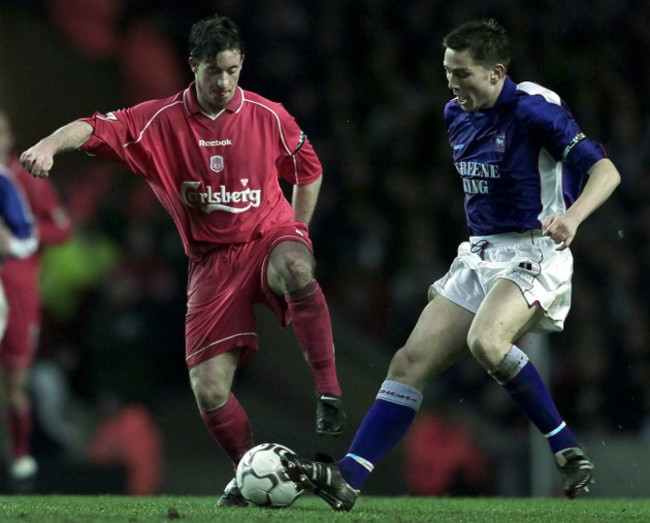
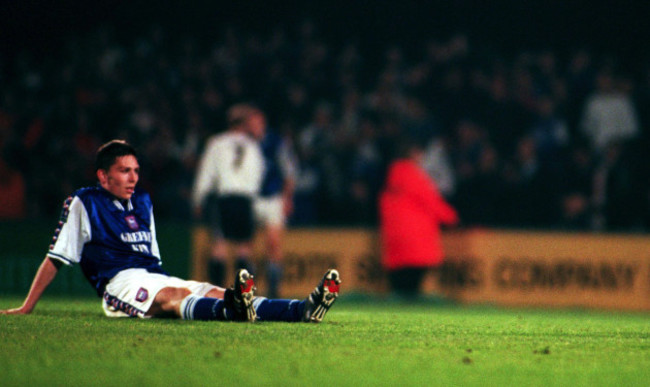
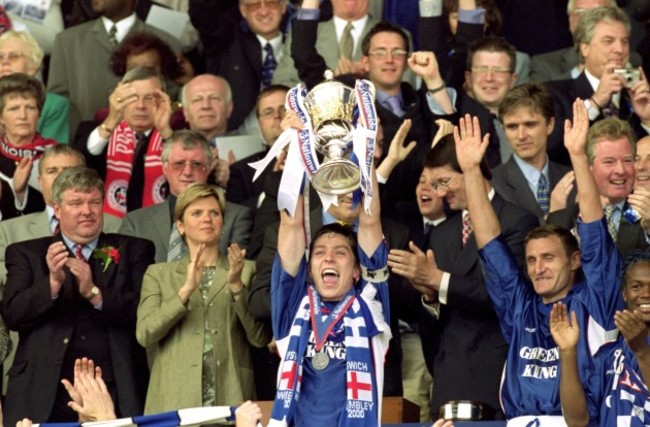
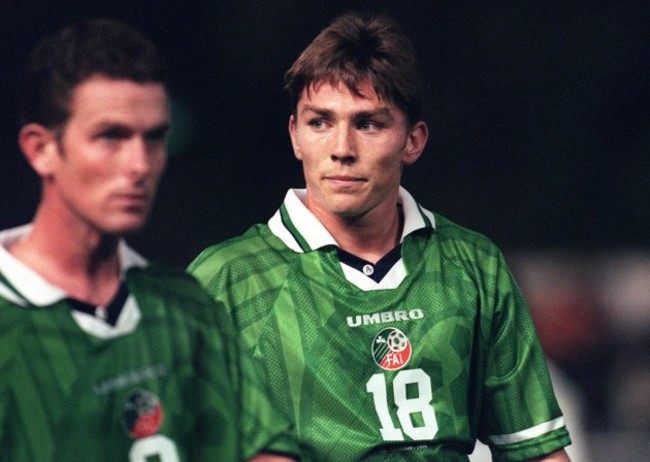
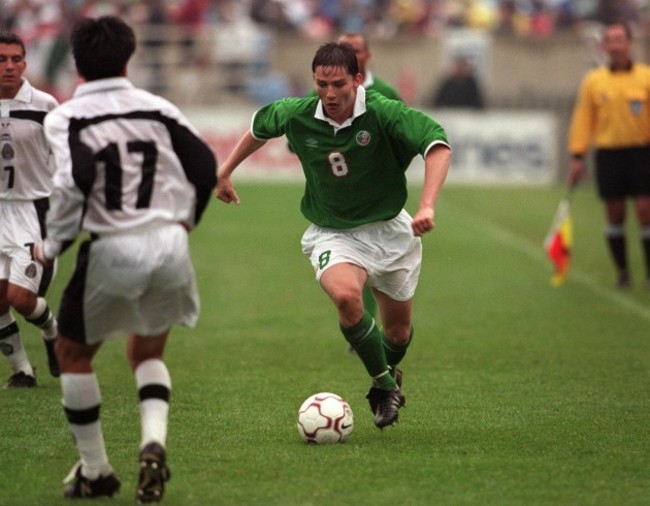
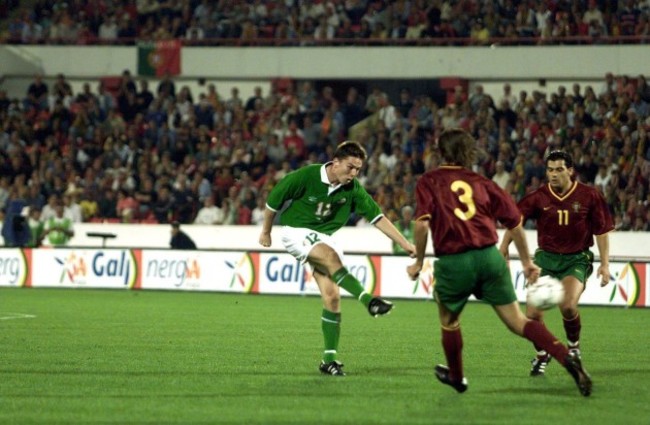
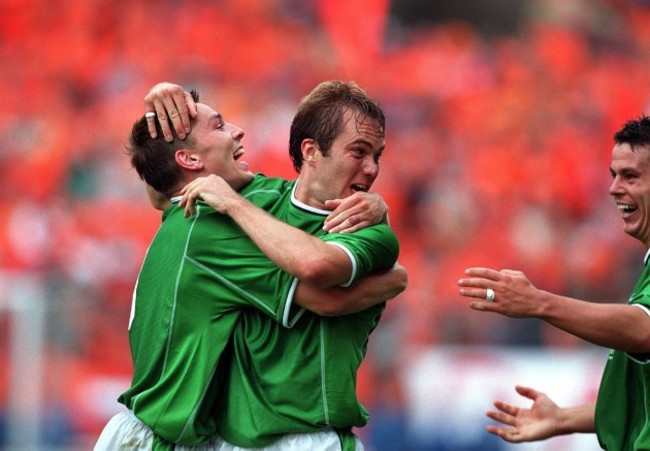
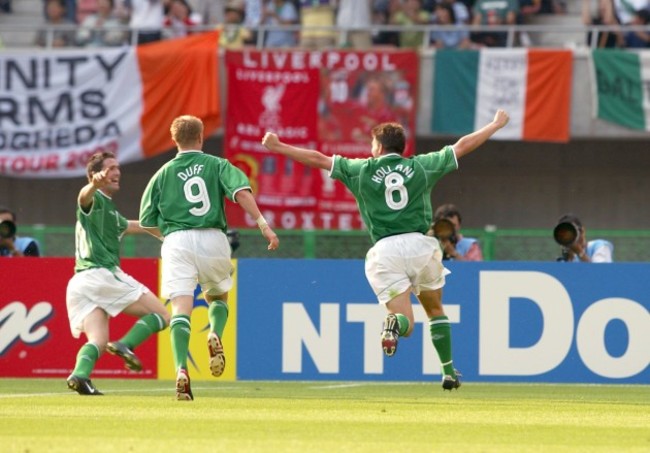
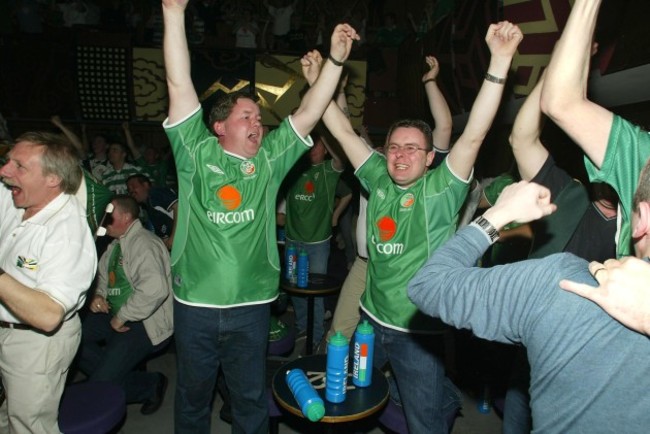
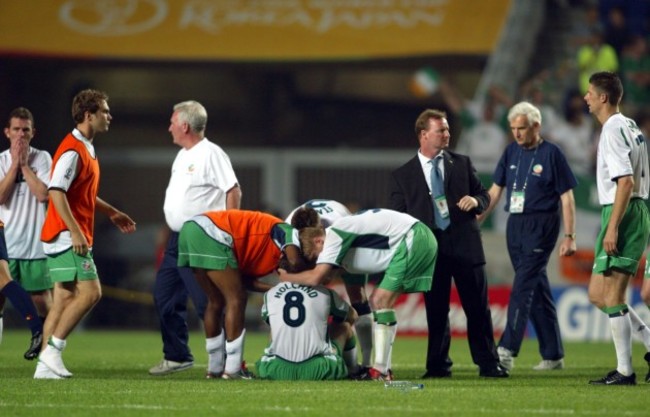
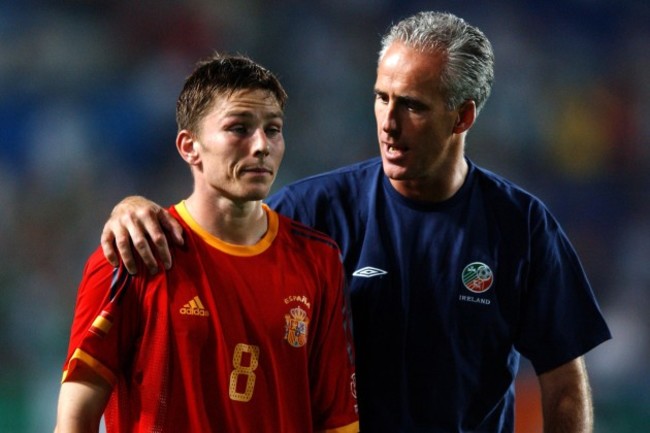

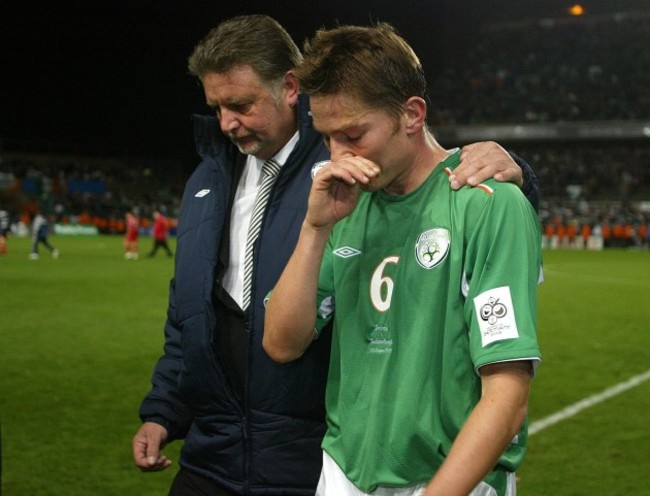
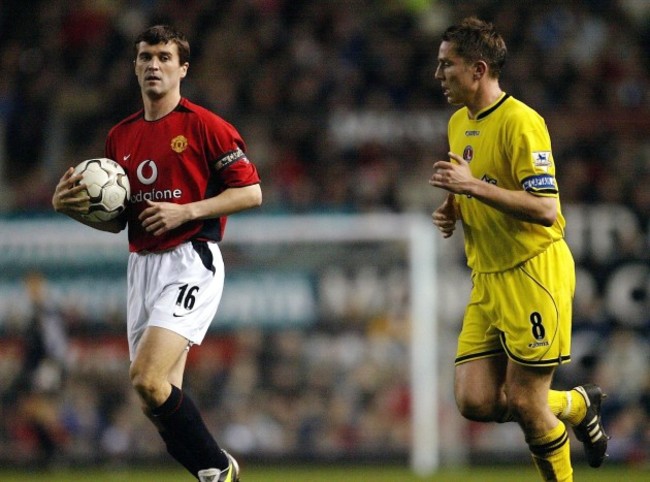
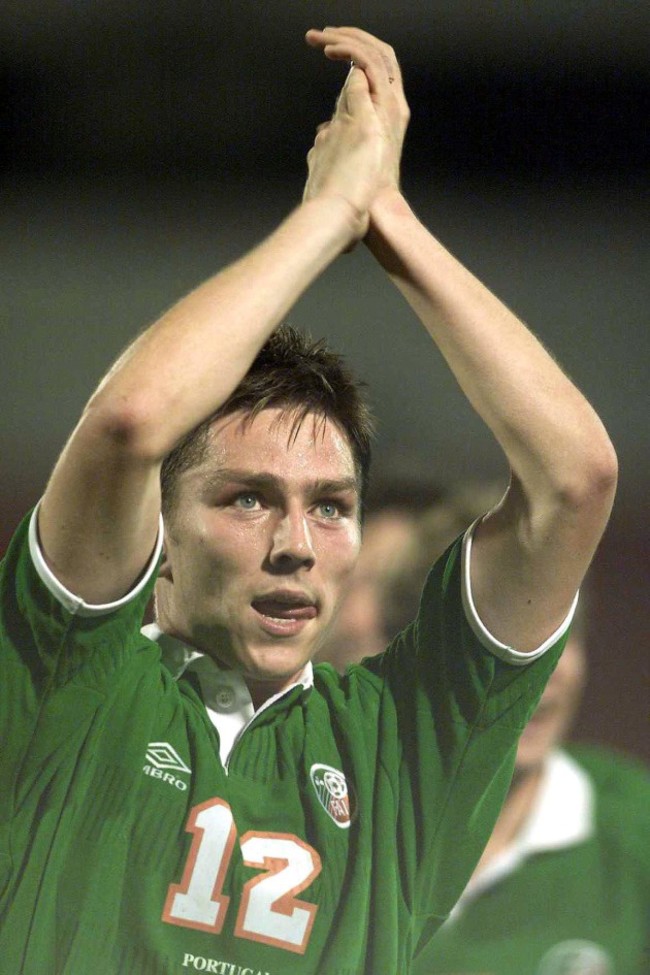

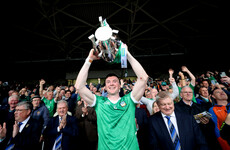
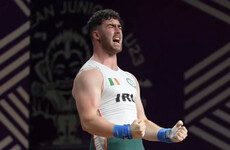

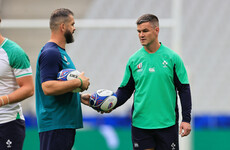
Two greatest sporting occasions ive ever witnesses were that game and also mayo v Dublin in all Ireland semi final. I can say that with objectivity coz I’m from Kildare but I have to say that afternoon when mcateer stuck it in the Dutch met will live with me till the day I die. COYBIG!
No he did not get booked for that challenge, just a talking to.
Coybig
He also had a great bit of skill in the lead up to the goal if memory serves
was he booked for that? I can’t recall
@Cathal, I agree 100%. I was at both games and McAteer’s goal was a classic
The Mayo comeback was incredible …..and I’m a Dub!.
One bad memory I have of the Dutch game was when Hassellbank came on as a sub the monkey chants started and some idiot even threw a banana onto the field. I was disgusted and the dope that threw that fruit onto the field was lucky I wasn’t standing near him. Yes, I am a Chelsea supporter also.
What a tackle , will never forget that day in the south terrace, but people forget Overmars was man of the match that day
Not the official man of the match ,but Overmars tore Ireland’s defence apart that day
The Dutch would have won if the ball ran evenly across the surface. Rugby pitch suited Ireland. Always remember Kluivert’s early miss.